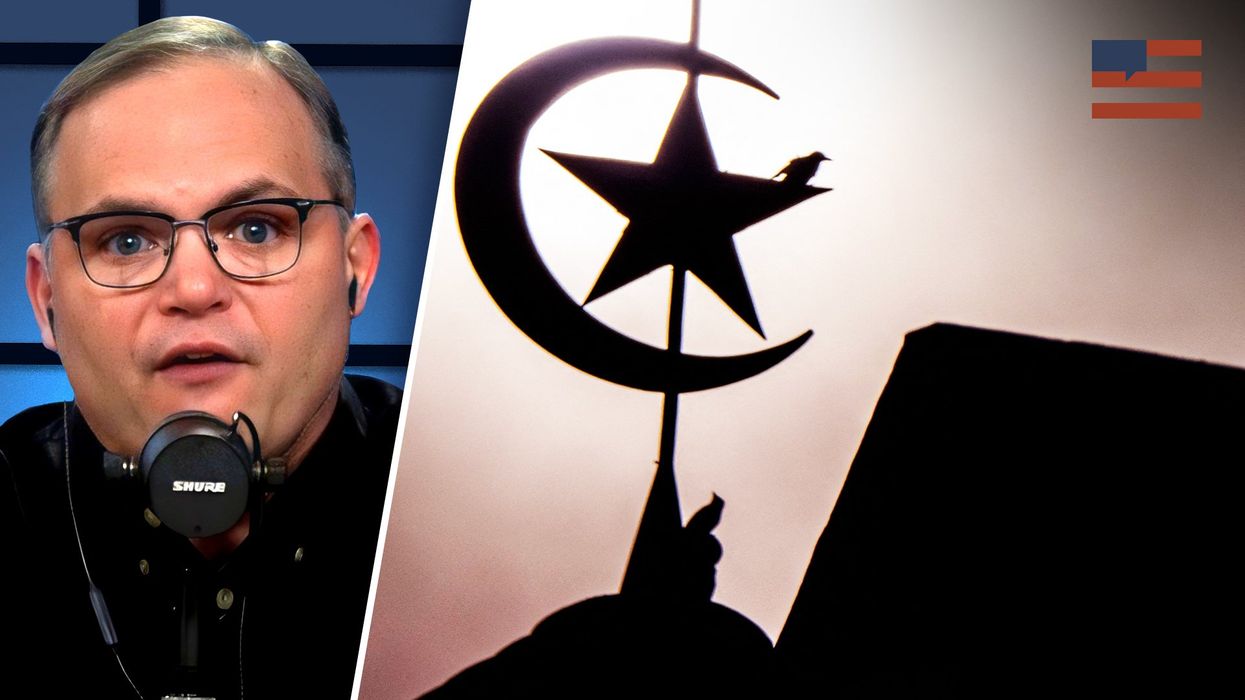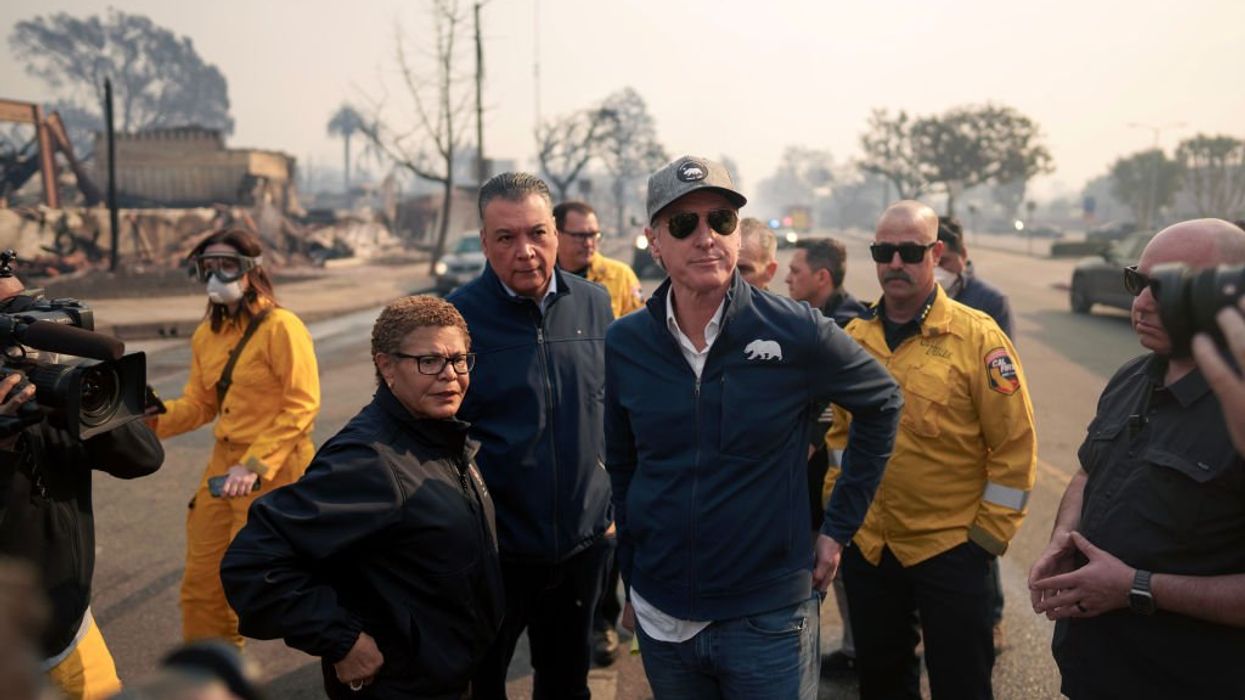© 2025 Blaze Media LLC. All rights reserved.
Our forefathers began the Bill of Rights with the First Amendment for some very important and very specific reasons.
Many Americans are familiar with some of the First Amendment, but most cannot list all parts of it. The Constitution is usually taught in eighth grade, or perhaps in high school, and of these students, a majority do not really look at the Constitution again. Sure, people know about freedom of speech and religion, maybe even assembly, but many people do not understand the correct interpretation of this amendment.
None of your rights under the Bill of Rights are absolute.
What I mean about absolutism with regards to the First Amendment is that a strict, literal interpretation of each right is not necessarily accurate. Given the overall ignorance most Americans have of their rights, at least being clear about what they actually are is helpful. It’s also important to note that the First Amendment delineates rights that are given to us by our Creator.
The Declaration of Independence clearly states that our rights come from Him, and the role of government is to protect these rights. Government does not give us our rights. This was extraordinarily different from the other governmental systems at the time. Our model has since inspired dozens of governments around the world. The design for government to be of the people, by the people, and for the people. This is why each of the amendments in the Bill of Rights begins with “Congress shall make no law…”
Congress, the President, the Supreme Court are all-answerable to the people. Violating this principle is the antithesis of what our Constitution was created to be. A generalized statement could be this; exercising your rights cannot be impinging on someone else’s rights.
First Amendment: Congress shall make no law respecting an establishment of religion, or prohibiting the free exercise thereof; or abridging the freedom of speech, or of the press; or the right of the people peaceably to assemble, and to petition the Government for a redress of grievances.
Government may not create a national religion. Government cannot force anyone to be of any faith. Putting a cross on a piece of public land has been argued to be violating this principle, and at the same time, all of our currency has the phrase “In God We Trust” printed on it. The lack of an absolute is this, government cannot force you to be a part of a religion, nor can it force you to go against the precepts of your religion.
Forcing Catholic organizations to provide for abortion services or contraceptives has been argued as a violation of this principle as well. Some advocate for removing “one nation under God” from the pledge of allegiance, because in their view it violates this concept, known as the establishment clause.
Freedom from the establishment of a national religion does not mean that religious expression of any kind must be prohibited nor does such expression necessarily imply an endorsement of any particular religion. To assert this position is to stretch the meaning of this clause to the breaking point.
Free exercise of religion allows anyone to choose any faith that they prefer, or no faith at all. Escaping from England, the Pilgrims left primarily because of this issue. They did not want to be a part of the state-sponsored denomination of Christianity known as the Church of England. Accordingly, it was very important to our forefathers to ensure that self-determination in the area of faith was essential. The government cannot restrict anyone from practicing his or her religion or no religion at all.
Freedom of speech has broadened in definition over the years by society and Supreme Court rulings. Free speech rights have been extended far beyond what our forefathers wrote, but so has technology. This right is not absolute. The old example of yelling “Fire!” in a movie theater is well known, but yelling “Bomb!” at an airport security checkpoint would also be a real demonstration on the limits of free speech rights.
Remember, the exercise of your rights cannot infringe on another person’s rights. We now have hate speech laws as well. The concept of non-absolutism in the Bill of Rights is more easily understood in this case than anywhere else. Offensive speech is protected by First Amendment, but threatening violence is not. It has been determined that use of some speech violates other citizens’ rights and is therefore not protected by the First Amendment. This is still a controversial, constitutional question.
Similarly, the press cannot be censored. Our forefathers had no way to know what the media would be like today, but they really didn’t have to. Regardless of what some say in government today, the people run the presses and the Constitution say those press products are free to express themselves as they wish.
Again, this right is not absolute, though. The press is not free to publish the plans for a nuclear bomb, nor is it free to publish threats to other people. The cases of Edward Snowden, Bradley Manning, and the Wikileaks website all pose challenges to this concept. Arguments can be made for freedom of the press and the potential for national security threats. The Supreme Court has ruled on these issues as well. Playboy magazine and other adult entertainment are protected speech, child pornography is not. Rights are not absolute, the exercise of these rights cannot infringe on anyone else’s rights. Freedom of speech, just watch what you say? That is not what the First Amendment says or intends.
The rights of the people to peaceably assemble and redress the government for grievances are exercised quite frequently. The Occupy Wall Street movement invoked this right during their protests, however, they infringed on other peoples’ rights, and so these demonstrations were not constitutional. The Westboro Baptist Church uses this right to assemble often, and even though their speech is truly disgusting and offensive to most people in the world, their exercise of their rights has been in line with the constitution to date. The response to their protests has likewise been constitutional, too. Veterans and others expressing themselves with roaring Harley Davidson's to drown out the Westboro Baptist Church are protected as well.
Our forefathers began the Bill of Rights with the First Amendment for some very important and very specific reasons. The assertion of these rights ,as given to us by our Creator, has been hallowed as one of the most important parts of our entire Constitution. Freedom and liberty are the bedrock on which our government stands.
Feature Photo Credit:
–
TheBlaze contributor channel supports an open discourse on a range of views. The opinions expressed in this channel are solely those of each individual author.
Want to leave a tip?
We answer to you. Help keep our content free of advertisers and big tech censorship by leaving a tip today.
Want to join the conversation?
Already a subscriber?
more stories
Sign up for the Blaze newsletter
By signing up, you agree to our Privacy Policy and Terms of Use, and agree to receive content that may sometimes include advertisements. You may opt out at any time.
© 2025 Blaze Media LLC. All rights reserved.
Get the stories that matter most delivered directly to your inbox.
By signing up, you agree to our Privacy Policy and Terms of Use, and agree to receive content that may sometimes include advertisements. You may opt out at any time.


